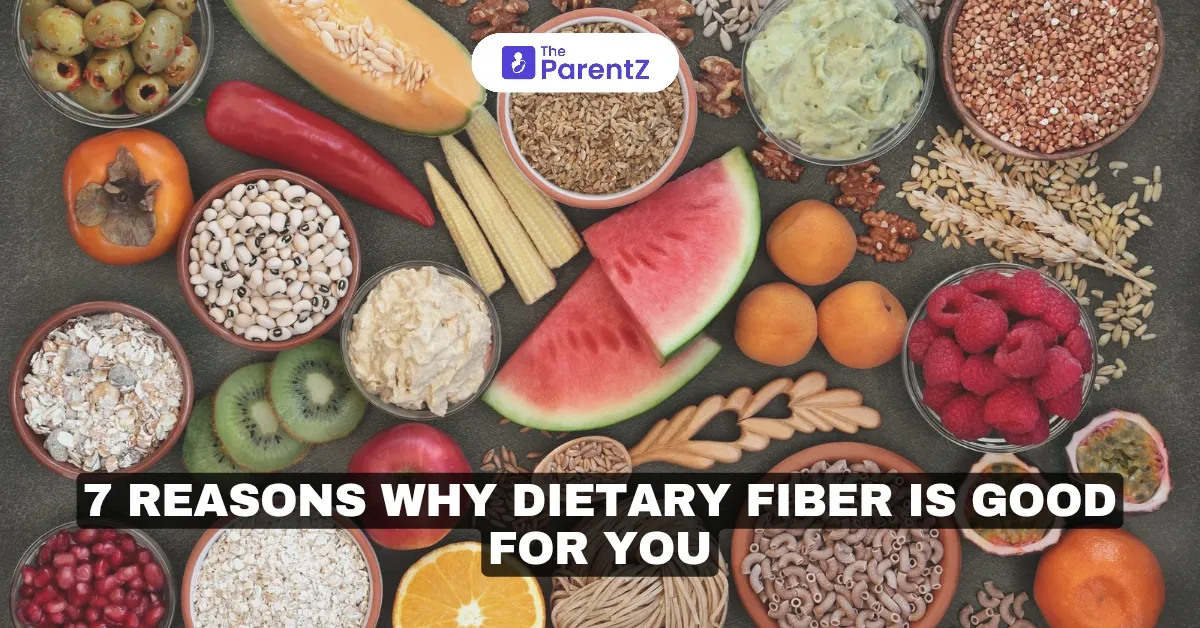Dietary fiber is one of those essentials that is often overlooked compared to protein or vitamins. However, fiber plays an essential role in digestion, heart health, blood sugar control, and longevity.
Unfortunately, 95 percent of people still don’t meet the recommended daily fiber intake despite the health benefits it has. Especially with the increasing popularity of modern diets that lean heavily on processed foods, fiber intake has significantly dropped. The result? Digestive issues, heart disease, and weight gain.
If you too are not getting enough fiber, it’s time to explore why fiber is good for you and why it must be incorporated into your everyday diet.
Supports Digestive Health
Fiber is an essential aspect when it comes to digestive health and keeps everything moving smoothly. There are two types of fiber, namely soluble and insoluble. The former absorbs water and softens stool, preventing constipation, while the latter adds bulk, ensuring regular bowel movements.
In a study, it was found that people who consume 25-30 grams of fiber daily are at a 40 percent lower risk of suffering from constipation.
Here are some high-fiber foods that may help in better digestion.
| Food | Fiber Content (per serving) |
| Whole wheat roti (1 medium) | 4g |
| Cooked brown rice (1 cup) | 3.5g |
| Green moong dal (1 cup) | 15g |
| Chana (black gram) (1 cup) | 13g |
| Spinach (1 cup cooked) | 4g |
Helps Maintain a Healthy Weight
Yes, you read it right.
Fiber plays a big role in controlling appetite and promoting satiety. Contrary to refined carbs that cause blood sugar spikes and hunger cravings, fiber, on the other hand, slows digestion and keeps you full for longer.
Surprisingly, increasing fiber intake by just 14 grams per day can result in a significant reduction in calorie intake.
Lowers Cholesterol and Improves Heart Health
High-fiber diets are also associated with lower cholesterol and reduced risk of heart disease. This is because soluble fiber binds with cholesterol in the gut and prevents it from being absorbed into the bloodstream.
Did you know that consuming 25-30 grams of fiber daily can reduce bad cholesterol by almost 10 percent and hence lower the risk of heart disease, according to the American Heart Association?
Here are some fiber-rich foods you must incorporate into your diet for good heart health.
| Food | Fiber Content (per serving) |
| Cooked oats (1 cup) | 4g |
| Flaxseeds (1 tbsp) | 2.8g |
| Rajma (kidney beans) (1 cup cooked) | 13g |
| Chickpeas (1 cup cooked) | 12g |
| Apple (1 medium) | 4.5g |
Helps Control Blood Sugar Levels
For individuals dealing with diabetes or insulin resistance, fiber plays an incredible role by slowing down sugar absorption and thereby preventing blood sugar spikes after meals.
In a research study, it was revealed that people with type 2 diabetes who consumed 50+ grams of fiber daily had better blood sugar control compared to those eating lower amounts. In fact, for non-diabetics, fiber-rich foods such as legumes, whole grains, and vegetables can help maintain high energy levels.
Lowers the Risk of Colon Cancer
Fiber plays an important role in ensuring a healthy gut microbiome, in addition to reducing inflammation and removing toxins from the digestive tract. In fact, in research, it has been noticed that people who consumed 30+ grams of fiber daily had almost a 19 percent lower risk of colorectal cancer.
Here is the recommended daily dietary fiber intake for each age group.
| Age & Gender | Daily Fiber Needs |
| Children (1-3 years) | 19g |
| Children (4-8 years) | 25g |
| Women (19-50 years) | 25g |
| Men (19-50 years) | 38g |
| Women (50+ years) | 21g |
| Men (50+ years) | 30g |
Improves Gut Health and Immunity
Fiber feeds good gut bacteria. This means fiber is your natural prebiotic. A healthy gut environment means better digestion, stronger immunity, and mood regulation.
Did you know high-fiber diets increase beneficial gut bacteria?
Here’s your reminder to include high-fiber foods in your diet for better digestion.
May Help You Live Longer
Surprisingly, high-fiber diets can reduce the risk of early death by almost 15-30 percent. Fiber reduces inflammation and supports metabolism. Moreover, it also protects against chronic diseases, an easy way to a longer and healthier life.
Conclusion
Dietary fiber is indeed incredible for your health, from better digestion to heart health, weight management, and a longer life. By incorporating high-fiber foods into your diet, you can notice a big difference in your health.









Be the first one to comment on this story.